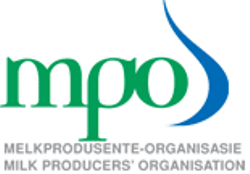
Whistleblower employee concept and whistle blower symbol representing a person in society or a company exposing corruption as a red whistle shaped as a human head in a 3D illustration style.
Whistle-blowing plays a vital role in both public and private organisations. It is defined as the exposing or divulging of information regarding wrongdoing within an organisation. This refers to information on any activity that is deemed illegal, unethical, or not correct within private, public, or third-sector organisations.
The Protection Disclosure Act (PDA) (26 of 2000) came into effect in February 2001 and protects whistle-blowers in both the private and public sector. This encourages a philosophy of transparency, to fight illegal activities and to create a culture of good governance.
In good faith
The employment relationship is essentially built on trust, and part of an employee’s legal duties include the fiduciary duty to always act in good faith, be loyal, and to have the employer’s best interests at heart. This also includes the employee’s duty to report any dishonest conduct of co-workers. When an employee is not guilty of an offence but was aware of the misconduct and did not report it to the employer, the employee violated the trust relationship and the employer can take disciplinary action against such an employee.
Whistle-blowing policy
Typical misconduct in the workplace that can lead to whistle-blowing includes theft, fraud, moonlighting, alcohol or drug abuse, the divulging or supplying of confidential information, and misuse of the employer’s property. Employers are advised to implement a whistle-blowing policy to encourage employees to divulge illegal, dishonest, or irregular conduct of co-workers. Such a policy can also promote a greater sense of accountability in the workplace.
An employer may not discipline, demote, transfer, harass, or dismiss an employee without cause where the employee has made a protected disclosure, as this action is likely to relate to the protected disclosure. However, disclosure by an employee of his own illegal activities will not be regarded as a protected disclosure and disciplinary action will be justified in such a case.
The employment relationship
It is important that employers inform employees of their fiduciary duty and the position of trust they are employed in. In most cases regarding the breach of confidentiality and trust, dismissal as a sanction is appropriate as it impacts directly on the root of the employment relationship that binds an employee to act in good faith and to further the employer’s interests. This misconduct can negatively impact the employment relationship, rendering trust irreconcilable.
Published on Monday, 11th May 2020 - 15:34
Recent Posts
disclaimer









